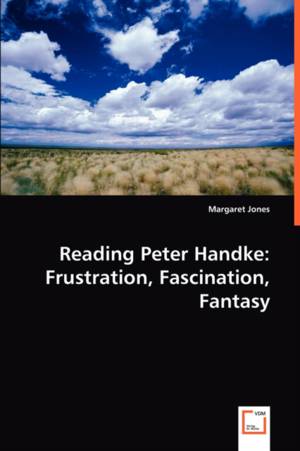
- Afhalen na 1 uur in een winkel met voorraad
- Gratis thuislevering in België vanaf € 30
- Ruim aanbod met 7 miljoen producten
- Afhalen na 1 uur in een winkel met voorraad
- Gratis thuislevering in België vanaf € 30
- Ruim aanbod met 7 miljoen producten
Zoeken
Omschrijving
This work began as an attempt to explain the difficult nature of Handke's prose. Why do readers either enthusiastically praise or passionately condemn his work? Why do his novels evoke the unique sensation of simultaneous fascination and frustration? Those who find Handke's prose to be pretentious, self-absorbed, or overly sentimental fail to recognize the author's playful and ironic tone. His style is highly self-reflexive: he aims to defy the temporality inherent in narrative, minimize psychological content, and blur genre distinctions. This work is particularly useful to anyone interested in modern/postmodern literary theory and theories of narrative form. The intended audience also includes those who seek an explanation as to Handke's controversial role both as public figure and author. In-depth interpretations of "In einer dunklen Nacht ging ich aus meinem stillen Haus," and "Die Lehre der Saint Victoire" are an integral part of this work. Other popular Handke novels are discussed in brief.
Specificaties
Betrokkenen
- Auteur(s):
- Uitgeverij:
Inhoud
- Aantal bladzijden:
- 52
- Taal:
- Engels
Eigenschappen
- Productcode (EAN):
- 9783836483339
- Verschijningsdatum:
- 17/04/2008
- Uitvoering:
- Paperback
- Formaat:
- Trade paperback (VS)
- Afmetingen:
- 152 mm x 229 mm
- Gewicht:
- 81 g

Alleen bij Standaard Boekhandel
+ 143 punten op je klantenkaart van Standaard Boekhandel
Beoordelingen
We publiceren alleen reviews die voldoen aan de voorwaarden voor reviews. Bekijk onze voorwaarden voor reviews.







